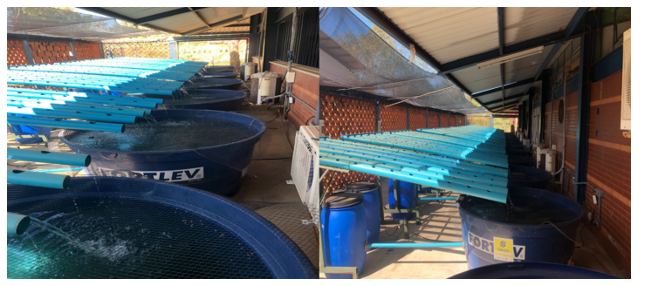ECONOMIC ANALYSIS OF SMALL-SCALE AQUAPONICS PRODUCTION IN NORTHERN BRAZIL
Aquaponics production integrates in a symbiotic way aquaculture and hydroponics. In this model, it is possible to reach high productivity of fish and plants adding environmental value to the productive system. However, research that analyzes the economic viability of these systems in Brazil is scarce, especially with native fish in the North of the country. In this context, this research aims to analyze the economic viability of lettuce (Lactuca sativa ) and tambaqui (Colossoma
macropomum ) production in a small-scale aquaponic system.
The research will use a structure installed in the Federal Institute of Tocantins (IFTO) with an estimated production of 360 kilograms of adult tambaqui and 2,250 kilograms of vegetables. The project will estimate the costs of implementing the system, as well as collect data on operating costs and sales of the products on the local market. For the purpose of economic feasibility analysis, the indicators Net Present Value (NPV), Internal Rate of Return (IRR) and payback will
be used . Additionally, the project will simulate different scenarios for feasibility analysis, including larger production scales, alternative juvenile tambaqui cultivation, and variations in costs and sales prices.
As results, the project expects to generate technical information on the economic viability of aquaponics, relevant to both the productive sector and academia. Additionally, it is expected that the dissemination of the system itself, as well as the results of the research can also encourage the use of the aquaponics system as an alternative strategy for environmental education and food security in one of the poorest regions of the country.
